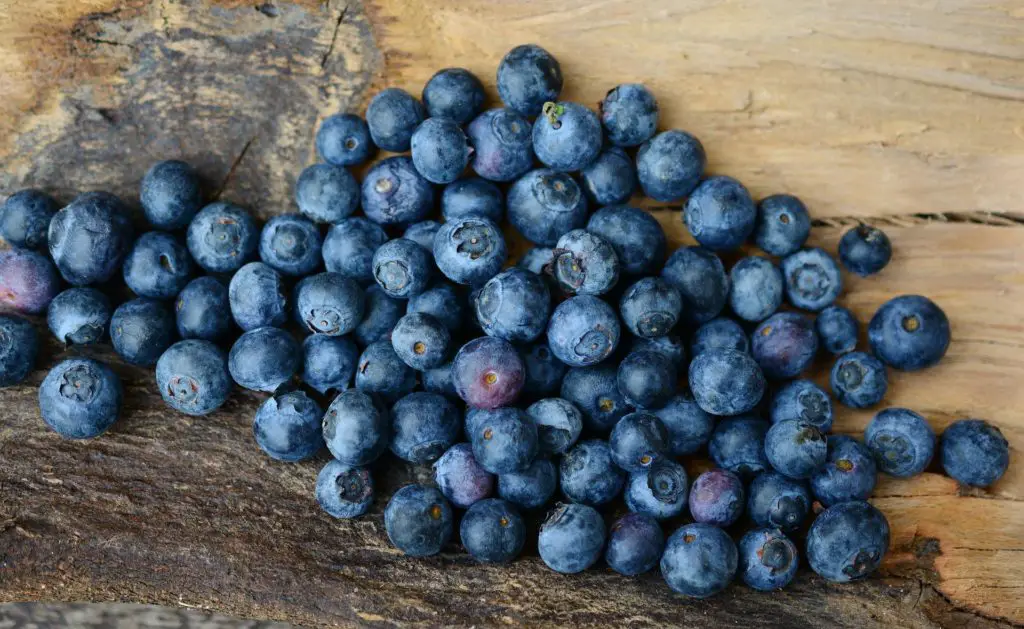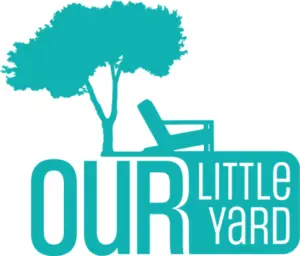Despite their size, blueberries pack a big flavor and lots of nutritional value. This popular fruit is eaten by the handful, in jams, smoothies, and delicious desserts. You can buy them at the grocery store, fruit stand, pick-your-own at a farm, or even grow them in your own backyard.
A great way to start your own blueberry plant is to buy a small plant at a local nursery or you can start your own blueberry bush by planting the seeds yourself. Due to the small size of this fruit, many people ask the question…do blueberries have seeds?
Yes, blueberries do have seeds inside of each small berry, which is soft and completely edible. Each berry can contain up to 10-20 seeds depending on the type and are so small they usually go unnoticed. The blueberry itself is not the seed, though many people assume this due to its small size.

What do blueberry seeds look like?
Blueberry seeds are very tiny and are usually very light or brown in color. They are oval in shape and come in clusters of 10 to 20 seeds depending on the maturity of the blueberry. The seeds are also very soft and you will notice them as you eat a handful of blueberries.
Can you eat blueberry seeds?
You can eat blueberry seeds and in fact, you do every time you eat a blueberry. Blueberry seeds are very soft and small and completely edible. When you eat a blueberry you will not even notice that you are eating them and actually the seed is just as nutritious as the fruit itself. Removing the seeds is possible but tedious and would only be necessary if you want to start your own blueberry plants.
Why are blueberries good for you?
Blueberries are known as a superfood because they are a great source of fiber, vitamin A, omega 3’s, vitamin C, and vitamin K. They are small, but packed with nutrients that your body needs.
- Vitamin K plays an important role in heart health, blood clotting, and bone health.
- Antioxidants – Blueberries contain an antioxidant known as anthocyanin which helps to protect your body from free radicals produced by your cells as waste products.
- Fiber helps your digestive system to run smoothly
- Vitamin C aids in growth development and repair of all body tissue, and its most notable benefit is its promotion of proper immune system function.
- Vitamin A has many benefits, some of which include, eye health, immune health, cell growth, etc.
- Omega 3 is beneficial for heart health, dementia, arthritis, depression, etc.
Types of blueberries
There are 5 types of blueberries including lowbush, Northern highbush, Southern highbush, rabbiteye and half high. Highbush varieties are the most commonly grown type of blueberry throughout the world. They are self-fertile meaning they do not require another plant for pollination.
| Type | Self-fertile? | Hardy Zone | Plant Height |
|---|---|---|---|
| Northern highbush | yes | Zones 4-7 | 5-9 feet |
| Southern highbush | yes | Zones 7-9 | 6-8 feet |
| Rabbiteye | no | Zones 7-9 | 6-10 feet |
| Half high | yes | Zones 3-7 | 3-4 feet |
| Lowbush | no | Zones 3-7 | Under 1.5 feet |
How to extract seeds from blueberry
While it may sound very tricky, there are several methods to extract the tiny seeds from a blueberry. It can be rather tedious, but extracting them by hand is the best way to get the seeds out of the blueberry so that all seeds remain intact. You can do this, but splitting the blueberries open and picking them out one by one using a pair of clean tweezers used only for this purpose.
You can also use a blender by adding blueberries and water and mixing on a medium speed. After you have blended up the berries, you can strain out the seeds and remove the skin of the fruit. This is the best way to remove the seed if you need a faster method. Below is a video on these methods:
Blueberries are very popular for their sweetness and their nutritional value and are considered a superfood. They are low in calories and extremely good for you making them popular in all kinds of diets. Blueberry seeds are not only edible but add to the nutritional value of the fruit. The next time you are enjoying a blueberry, take a bit of one and check out all those tiny seeds inside that you may have never noticed before!
Growing a fruit and vegetable garden? Check out how many watermelon you can expect per plant here.
